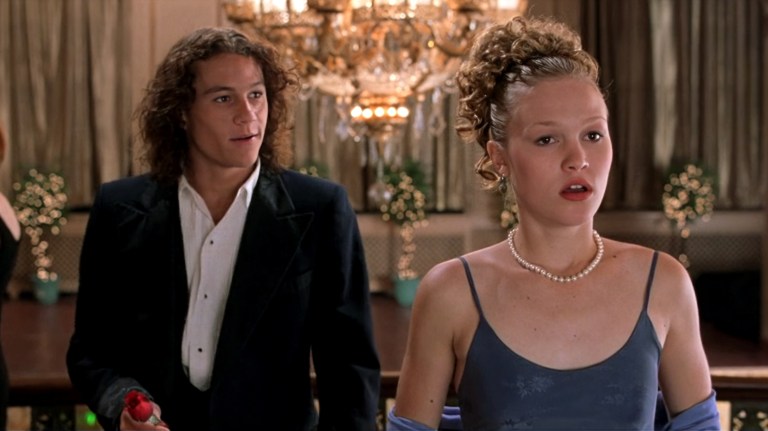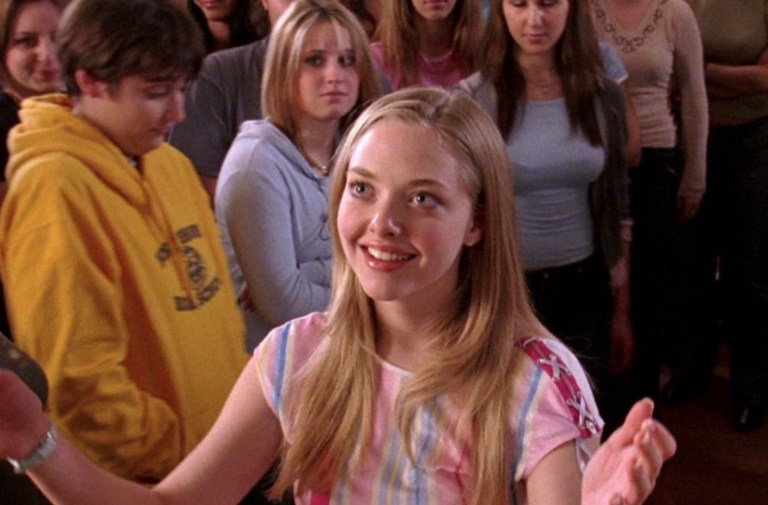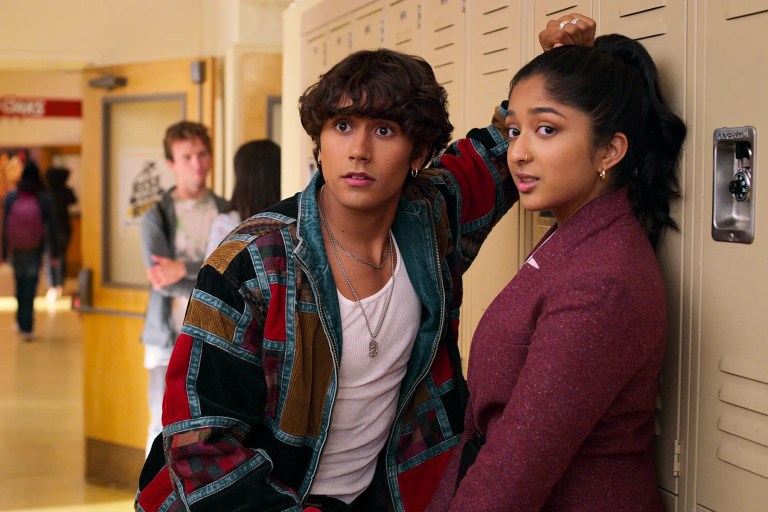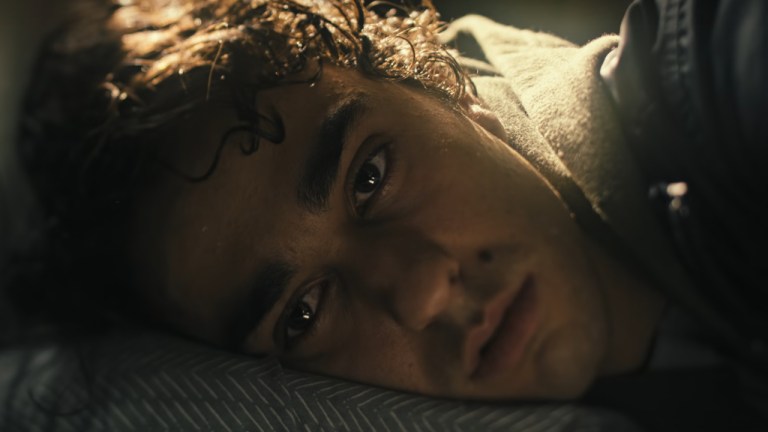
3 Unrealistic Love Lessons From “Gilmore Girls” That Were Actually Toxic
Gilmore Girls is undoubtedly one of the best written television shows, but it did have some unrealistic and toxic life lessons about love and romance we could have done without.
The autumn season brings with it many blessings – refreshingly cold weather, beautiful foliage, pumpkin flavored lattes, and an inevitable re-watch of the entire Gilmore Girls franchise to teleport us into the cozy Stars Hollow where whirlwind romances thrive and small-town politics reign. Gilmore Girls is undoubtedly one of the best television shows when it comes to genius, fast-faced witty writing and its moving portrayal of a heroic, close mother-daughter relationship – but despite it being a fan favorite (and one of my own personal favorites), it also has some problematic aspects that must be looked at more closely. One of these problematic aspects are the toxic messages it portrayed about love and romance. Here are the three unrealistic lessons about love and romance that we could have done without in Gilmore Girls:
“Bad boys” can and will change for the right woman – and sleeping with married men is depicted as a rite of passage.
Throughout Gilmore Girls, we get introduced to two types of “bad boys” that serve as a pivotal love interest for the studious, ambitious Rory Gilmore (played by Alexis Bledel). The first is the brooding Jess Mariano (played by Milo Ventimiglia), the town’s resident hoodlum who frequently gets into scuffles and lashes out at anyone who tries to help him or gets too close to him. As Luke’s nephew, he has “daddy issues” due to his absent father and his negligent mother. Yet despite his lack of goals, academic motivation, and underachievement, Jess is naturally intelligent and witty, which seems to make him a match for Rory’s intellect. Rory, the perpetual “good girl” is drawn to Jess because of his intelligence but also because he is unlike anyone she has ever met so far in her life: he introduces her to new experiences, music, and an element of excitement and danger that Rory in her otherwise sheltered life hasn’t yet encountered.
Yet at the time she meets Jess, she is in a loving, healthy, committed relationship with Dean Forester, who she has been dating for two years. Dean may have some flaws himself, but in many ways, he is a “perfect” boyfriend for Rory, consistently treating her with respect, attentiveness, and no doubt about his love for her. Yet Rory ends up kissing Jess and cheating on Dean when he returns to Stars Hollow – and spoiler alert, Rory and Jess later end up in a relationship themselves. Implicitly, the show seems to emphasize the inevitability of Jess and Rory’s romance, as it abruptly sets aside the “safe” option of healthy love with Dean to make room for Jess’ redemption arc as Rory’s new love interest.
Despite his promising infatuation with Rory, Jess has many toxic traits and behaviors, including his angry outbursts, becoming sexually aggressive with Rory when she refuses to have sex with him, his failure to plan romantic dates, and his long history of delinquent behavior. Yet Jess is given this redemption arc throughout Gilmore Girls and ends up being seen as a more benevolent character in the end due to his long-lasting love for Rory which never seems to wither throughout the series. In reality, “bad boys” or individuals with antisocial behaviors like the ones Jess portrays would be unlikely to change in the long-term due to their love for any woman, even if we do love the fantasy of Jess Mariano. In addition, Rory also ends up going back to and sleeping with Dean when he is a married man, which also sent a toxic message to viewers about getting involved with partners who are not only emotionally unavailable but already committed to other people. Like mother, like daughter, Rory justifies her problematic actions by reminding Lorelei that she slept with Christopher when he was engaged to another woman. The casual way in which both Gilmore Girls cheat with partnered men is certainly not something to be emulated.
Serial cheaters and players can also change for the right woman and should be kept around because of “true love.”
The other “bad boy” love interest we meet in the series is Logan Huntzberger. In contrast to “rough around the edges” bad boy Jess, Logan is the more entitled, privileged version of a bad boy – he is filthy rich, charming, a serial player and yet magically he is willing to change his “player” ways to commit to Rory – or so it seems at first. Rory is often depicted as the “dream woman” who has the power to convince philandering men into changing their disloyal and deceptive ways. Yet after one of their first big arguments, Logan ends up cheating on Rory with several of his sister’s friends within the span of a few weeks, using the classic excuse of, “We were on a break!” (Ross Geller, anyone?) despite no such official communication being relayed to Rory.
Logan also creates toxic love triangles with Rory and other women many times throughout the series while the writers depict Rory as a jealous girlfriend – most notably when Logan allows her to walk into a room filled with the bridesmaids he slept with during his sister’s wedding, only to be publicly humiliated when they disclose this to her. In another incident with Logan’s work colleague, Bobbi, he insists there is nothing going on, despite complimenting her figure in front of Rory (rude!). In real life, such a circumstance would be riddled with red flags and would be a legitimate cause of concern – it would be enough of a reason to run, since heartache after a simple argument should never be resolved by sleeping with other women shortly after, and close “work wife friendships” tend to be harbingers of disaster, disguising more brazen betrayals. In the fictional Gilmore Girls universe, it’s just a “cute” plot twist that proves Logan’s undying loyalty for Rory and Rory’s anxiety, despite the fact that Logan has a long history of narcissistic womanizing and probably shouldn’t be trusted. Logan is still portrayed by the writers as faithful to Rory despite it being unrealistic to his true core character and past patterns of behavior.
Logan’s dubious character is further reinforced in the Gilmore Girls revival season (A Year In The Life), where (spoiler alert) we learn that he did not choose Rory over his family obligations and instead opted to make her his mistress and is actively cheating on his current wife. Yet because of the way he sacrificed some of his player ways for Rory in the past, and because Rory is the “main character” of this twisted love story where she may even be possibly pregnant with his child, viewers are again taught to believe that such a toxic situation may be a desirable endgame. Many fans believe Logan and Rory are destined to be together, despite the fact that he still cannot truly commit to her and she is just repeating the same mistake she made when she slept with a married Dean in the revival series. The message? Hold out for a toxic, cheating man to change and eventually you’ll get rewarded – like becoming the mistress in his marriage! Not quite the love lesson that will benefit viewers or encourage healthy relationships.
Marriage, relationships, and children are the ultimate goals in life.
Gilmore Girls is admirable in the way it depicted the goal-driven, ambitious mother-daughter team, well ahead of its time. Despite her teenage pregnancy, Lorelai Gilmore works her way to the top and ends up owning her own inn after a life of hard work as a single mother juggling jobs without any help from her wealthy parents. Rory Gilmore works her way diligently toward achieving her childhood dream of attending Harvard (although she later chooses Yale) and her academic excellence is, for the most part, consistent throughout, though her life does take many turns. Both are brilliant, dedicated women in their own ways who are laser-focused on their dreams. Yet these epic storylines of pursuing their dreams are often secondary to the tumultuous ups and downs of their romantic lives, which tend to be centered as the main focus. Neither Lorelei and Rory ever really take a break from relationships which is simply unrealistic given the gravity of the goals they both achieve and is frankly unhealthy – neither ever give themselves a chance to explore who they really are without being in a relationship with a man or being defined by their romance with one.
There is never much of a long period where either of the Gilmore Girls explore their singlehood, date around, or pursue self-development without having a man on the rebound or their radar. When Lorelei breaks up with Luke, she immediately gets into a relationship with Christopher. When Rory breaks up with Dean, she’s immediately in a relationship with Jess. If Rory ever “dares” to be alone at college, she’s critiqued by those around her and pressured to have a man in her life. Even Paris Geller, the demanding yet lovable aggressive perfectionist hellbent on being the best at all times, is obsessed with her boyfriend Doyle throughout the series. Rocker best friend Lane Kim certainly deserved a better storyline than getting married to a financially unstable man only to end up pregnant with twins after having sex for the first time on her wedding night. Lane is never given the opportunity to have even a young adulthood filled with pursuing her dreams of music – she immediately jumps into marriage and parenthood in her early twenties after living a sheltered and controlling childhood and adolescence under her mother’s watchful gaze.
Both throughout the regular series as well as the revival episodes, marriage and having children are seen as the inevitable “goals” and the final destination for the main and side characters, despite any consequences or the harm it causes to themselves or other innocent people (such as the partners of the married people the Gilmore Girls cheat with). Having any relationship is seen as preferable to having none, even if it is one below your standards or harmful to your mental health. At the end of the day, no one is denying that Gilmore Girls is an enjoyable fantasy world and offers plenty of lively and exciting romantic plotlines that viewers may enjoy watching. Most of us love escaping to Stars Hollow and the colorful personalities and lives of the Gilmore Girls – but that doesn’t mean we have to model our own relationship standards or aspirations on them.











